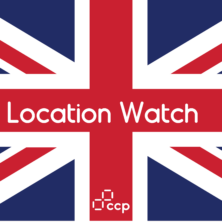
Dr Lisa works in the commercial food safety arena, working as an expert witness for food law and practice and is regularly called upon to comment on public hygiene issues in the media. She also appears on prime-time consumer shows which have included Watchdog, Rogue Restaurants and Holiday Hit Squad in addition to many radio and TV news programmes. She has worked with Food Safety Adviser to UKHospitality and is a Trustee of the Royal Society for Public Health.
We spoke to Dr Lisa about ‘Natasha’s Law’ – a legal response to the tragic consequences of an allergic reaction. The requirement is that all food that is prepacked for direct sale (PPDS) will need to comply with new labelling rules before 1st October 2021. We talked about the new regulations and their impact on the customer service operations for food and hospitality sector businesses.
How will the new regulations change customer service for the businesses involved?
Dr Lisa explained that: “Even before the new law, food businesses needed to have accurate information on allergens so they could pass this onto customers. This needs to be absolutely up to date information about allergens in their company’s products. If the data is inaccurate, the message will be inaccurate and the consequences could be fatal.”
She continued: “Ingredients from suppliers must come from a reliable source which can supply accurate live data about ingredients.”
Where can organisations get access to this live data about what’s in the foods?
Dr Lisa explained: “Thankfully there are businesses working hard to make vital allergen information available to the industry and consumers alike. NT Assure, for example, are a company of food technologists who check data and make it available in a number of formats for food retailers, cafes and restaurants or their end customers. Away from the point of sale, an app called Glass Onion is available which aims to allow people to select places or things to eat based on their specific dietary or allergen needs.”
She continued: “It’s still imperative, though, that the allergic customer should speak to the business about their needs to makes sure the business can prepare food safely for them. This is where having the right information, systems and training available to customer-facing staff is vital.”
Dr Lisa added: “It’s reasonably easy for a business, when asked, to gather the information and pass this onto the customer about the ingredients that their suppliers have declared. However, there still needs to be a further discussion about the risks of cross-contamination during preparation and cooking, for example about whether a fryer is used for foods containing the ingredients to which they are allergic.”
She concluded: “That’s where good customer service support can really help. A common approach to communicating important and updated allergen data can ensure that the right information is given to those customers who need it, reducing the stress and training burden on front-of-house staff.”
What are the new regulations and which businesses are affected?
Dr Lisa stated that: “All food that is prepacked for direct sale (PPDS) will be required by law to have clear labelling showing all the ingredients with the 14 legally declarable allergens shown clearly (usually in bold). This now applies to foods made in-house (previously they were exempt). Many see this as a huge step in the right direction to ensuring allergic guests have detailed information in the same way as if buying a typical food at retail, but there are some potentially unforeseen consequences for many businesses who face the challenges of preparing an accurate label.”
She continued: “All restaurants are required to display signage or information on their menus to encourage allergic customers to talk to them about their needs. To my mind, this dialogue is absolutely critical, regardless of whether the customer is buying a PPDS food with a label on or a restaurant meal.”
Dr Lisa explained: “I believe that once a business knows they have a customer with a need to avoid a food, they can then take actions to prepare food specifically and safely for that customer. In many cases where there are issues or complaints, restaurants report that the customer had not made them aware of their allergy and had chosen from the menu without checking. This is something everyone needs to avoid. I think a proactive approach by the business is often the best, asking guests when they are seated if anyone has any allergies or intolerances they (the kitchen) need to know about. This helps to make the customer more at ease and prompts reluctant guests (often young adults are shy to say about their needs).”
She stated that: “If a business fails to provide food that is not as ordered or requested, then this is a legal contravention and of course could end in tragedy; for so many reasons, businesses need to get this right.”
She added: “Delivered food is exempt from labelling. This carries huge risks, for example, if verbal instructions given by the customer when ordering don’t reach the chef. There have been issues where instructions given via online systems have not been clear or communicated properly to the restaurant and this is an area that is being worked through to make improvements across the board.”
Dr Lisa points out that: “There are still possibilities for confusion, as whilst any food which is packaged prior to order could be PPDS much depends on the detail of how the food is packaged. If it is only loosely packaged, with for example an unclosed box, it may not be PPDS. Some foods in an outlet may be exactly the same but will fall into PPDS and require a label if in a sealed bag, or will not need one if on a cake stand – for instance, you might buy a bagged croissant which must have clear labelling about allergens, but a loose croissant in the same cafe does not need labels, even though it might be sitting next to the almond croissant you’re violently allergic to.”
She concluded by saying that “An area of confusion is how the Food Hygiene Rating Scheme fits into allergen confidence. Currently whilst there is a “confidence in management” element in the scheme, it is not specifically concerned with allergen management. So, a 5 Food Hygiene Rating does not necessarily mean that a restaurant or cafe is allergen safe. It is vital then, that consumers engage with the business to make sure that the food they are buying is safe for them, regardless of the Food Hygiene Rating. Allergy UK is now offering the ‘Allergy Aware’ scheme for hospitality venues but this is much less well known. The FHRS is currently under review by the FSA together with a panel of stakeholders.”
What are the main issues for food and hospitality sector businesses?
Dr Lisa responded: “Many businesses are dealing with the new legislation by trying to design out human error because providing incorrect or incomplete information at the point of sale can have serious consequences in human terms, not just failing to meet the law’s requirements.”
She explained: “For a small business, the burden of the new legislation may mean that many stop selling PPDS foods. In a restaurant or cafe, the onerous labelling requirements (which include listing ingredients by descending order of weight) will apply to them if they serve PPDS foods, but they do not have the technology and resources of a large manufacturer. They can’t write the complicated labels by hand – just look at the back of a retail sandwich and you will see why! Furthermore, working often from a small kitchen where there is naturally more risk of cross-contamination compared with a large manufacturer who has discreet lines for each food.”
Dr Lisa made it clear that: “Whilst there are 14 allergens covered by the UK labelling law, there are actually at least 160 foods that have been reported to cause an allergic reaction for some people. A simple-looking sandwich can be a very complicated collection of potential allergens (not just the 14), and a typical kitchen cannot be realistically expected to strip down after every order is made up. Anyone claiming food is “allergen free” is deluded in my opinion – it is not possible! I would urge everyone to avoid this term completely, as I would say it is also misleading.”
She added: “Interestingly, UKHospitality found that 40% of reported allergy complaints are made by people who have not made their allergy clear in advance. PPDS law may mean less rather than more dialogue, leading to unforeseen risks.”
Dr Lisa concluded by saying that: “The new regulations place the responsibility firmly with the food business, not the consumer, but this is a partnership. To avoid problems, food businesses need to offer clear signage, labelling and pathways for consumers to ask questions about their food. Centralised customer service teams with timely access to the most up to date information can play a huge part in helping front-of-house staff and chefs to deal with enquiries from concerned customers, but above all, the data whether held locally or centrally needs to be accurate.”
How can food businesses and their customer service teams prepare for the introduction of Natasha’s Law?
Before taking your next steps to get your teams ready, consider the following suggestions from Dr Lisa. Are your leaders and staff ready to address these issues?
- Scope out the risks and requirements for your (or your client’s) business – it is important to carry out an allergen risk assessment
- Engage with a suitable consultant if you don’t have the in-house expertise, or speak to your local authority or Primary Authority if you have one to get help
- Check out information on the Food Standards Agency Website and UKHospitality website
- Make sure you get your signposting right to encourage customer engagement
- Set into place systems to manage allergens that dovetail with your existing Food Safety Management System
- Train your staff and make sure that above all, the gatekeepers, Front of House staff, are not forgotten. If nothing else, the message to them is “don’t guess”
- Get the scripts right, including clarifications and necessary disclaimers
If your business works in the food and hospitality sector, or if you’re providing outsourced customer service for food clients, we can help you to get ready for these important new laws. Get in touch with Contact Centre Panel to discuss your next steps




